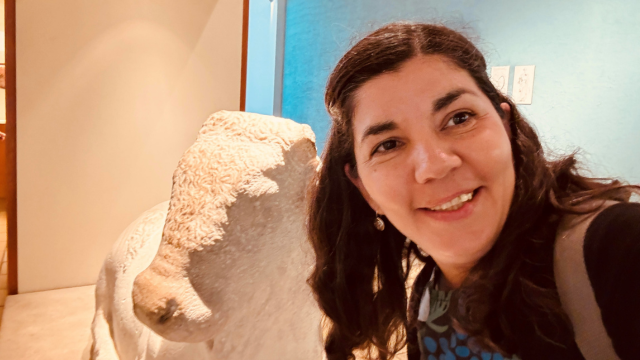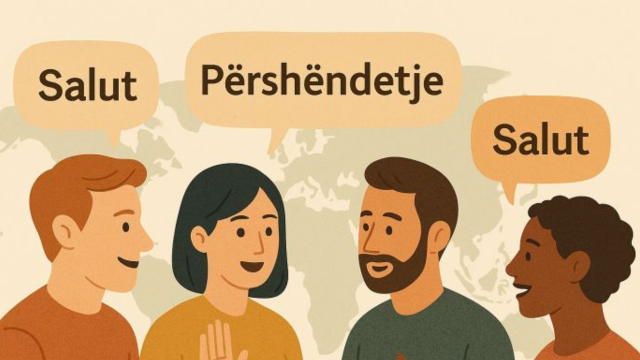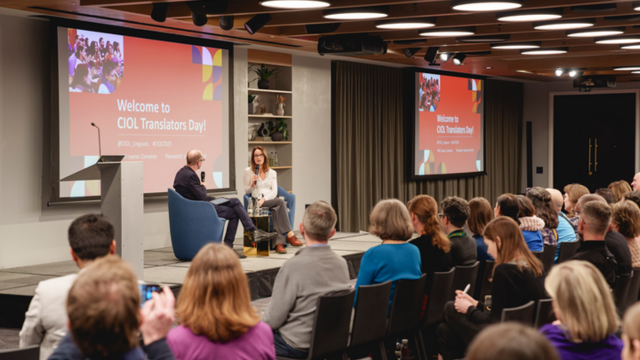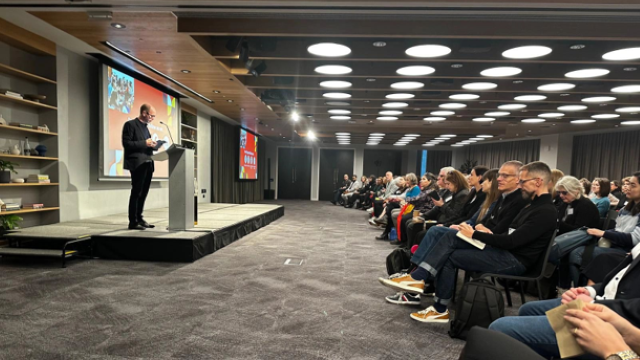-
QUALIFICATIONS
- For Linguists Worldwide
- For UK Public Services
- Preparation
- Policies & Regulation
-
MEMBERSHIP
- Join CIOL
- Membership grades
- NEW for Language Lovers
- Chartered Linguist
- Already a member?
- Professional conduct
- Business & Corporate Partners
-
ASSESSMENTS
- For Second Language Speakers
- English as a Second Language
-
EVENTS & TRAINING
- CPD, Webinars & Training
- CIOL Conference Season 2025
- Events & Networks
- CIOL Mentoring
-
NEWS & VOICES
- News & Voices
- CIOL eNews
- CIOL Awards
- The Linguist
- Jobs & Ads
-
RESOURCES
- For Translators & Interpreters
- For Universities & Students
- Standards & Norms
- CIOL & AI
- All Party Parliamentary Group
- In the UK
- UK Public Services
- Find-a-Linguist
The Manifesto from the Linguistics in Modern Foreign Languages Project
By Professor Michelle Sheehan
What is important about linguistics in successful language teaching, and how can the new Manifesto from the Linguistics in Modern Foreign Languages Project help to promote that?
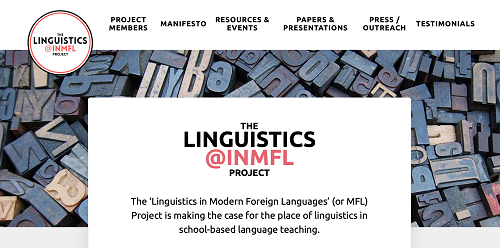
Learning to speak a language is intoxicatingly wonderful. As a lifelong language-learning addict, I like nothing better than realising I can express an idea in a novel and eloquent way or understand a complex (or even simple) utterance in another language. For these reasons, it makes sense to me that we should promote languages as communicative tools with real world applications; as skills to be acquired and used.
However, I have also always been fascinated by the inner workings of languages. Sure, I want to get my Portuguese pronouns in the right place when I am speaking but I also want to understand the system that determines where pronouns go, how it originated, how children acquire it and how and why it varies from region to region and speaker to speaker in intricate ways. This is probably why I became an academic linguist as this is essentially my job: attempting (and sometimes even managing) to understand how certain aspects of certain languages work and then helping students do the same. It turns out that I am not alone in this interest, however. Many people are fascinated by the fundamental questions of linguistics: where languages come from, how they are structured, how their sounds interact, how they change over time and how their use varies according to age, gender, social class and even friendship group.
The attraction of this analytical dimension of language(s) is the driving force behind the Linguistics in Modern Foreign Languages project (made up of me, Dr Alice Corr, Birmingham University, Dr Anna Havinga, Bristol University, Dr Jonathan Kasstan, University of Westminster, Dr Sascha Stollhans, University of Leeds and Dr Norma Schifano, Birmingham University). Over the past six years, we have worked extensively with pupils, teachers, teacher trainers and other partners to investigate the extent to which linguistics could fruitfully be included as a component of language teaching in UK schools (with an initial focus on post-16 education). The results are striking. Pupils are fascinated by the linguistic histories of the languages they are studying and the social information that those languages can encode. Topics like linguistic discrimination, minority languages and urban slang are things which pupils feel strongly about and have opinions on. As one student who took our classes said, they “enabled a wider variety of opinion and means for debate.”
Students also perceived our linguistics-based classes (co-created with experienced teachers) to be useful, moreover, as well as different from their usual classes. They found the content easy to understand and interesting. Their comments revealed that they considered them highly relevant: “It made me realise that the French I study is just a small part of the linguistic heritage which makes up France and other francophone countries”. In fact, for some students, the classes were a real game-changer: “The class I took changed my perspective of languages as a whole.”
So what’s not to like? Well, a potential risk of exposing students to a more complex view of language, including variation and change, is that this might confuse them or lead them to make ‘mistakes’ by diverging from the standard variety. The teachers who participate in our study often change their mind about this potential challenge, however, when they see how well their students deal with this more nuanced view of language. As one teacher put it: “Anything that gets them talking about language is a good thing.” Perhaps a better awareness of when and why ne gets dropped in French might actually remind pupils not to drop it in the formal context of an oral exam (even though in everyday conversation ne-dropping is rife). Turning a blind eye to variation of this kind creates confusion with learners left with the erroneous impression that French native speakers do not speak good French – a falsity which has recently been eloquently debunked by a group of French linguists.
So passionate are we to promote linguistics as a potential armament in the fight for languages that we have recently launched our Manifesto for linguistics in language teaching in the UK context, drafted with the help of many dedicated teachers, fellow academics and professional linguists. It has already been endorsed by a large number of important learned societies and professional organisations, including the Chartered Institute of Linguists. The manifesto lays out the opportunities and challenges for linguistics in language teaching as well as a set of concrete actions which could be taken in this domain. It highlights the potential for linguistics to help with employability, pupil motivation and inclusivity in our increasingly multilingual schools, amongst other things. Why not take a look at our suggested actions and see how you could get involved! Our hope is that the manifesto will help teachers, school leaders and policy makers see that there is much more to learning a language than the four skills (important as they are). For some people, the analytical dimension offered by linguistics may be the hook which reels them into the wonderful world of languages.
Professor Michelle Sheehan is Professor of Linguistics, Degree Programme Director for language and linguistics undergraduate degrees, and Lead on Linguistics in Modern Foreign Languages Project, Newcastle University
Views expressed on CIOL Voices are those of the writer and may not represent those of the wider membership or CIOL.
Filter by category
More
The Chartered Institute of Linguists (CIOL), Incorporated by Royal Charter, Registered in England and Wales Number RC 000808 and the IoL Educational Trust (IoLET), trading as CIOL Qualifications, Company limited by Guarantee, Registered in England and Wales Number 04297497 and Registered Charity Number 1090263. CIOL is a not-for-profit organisation.

